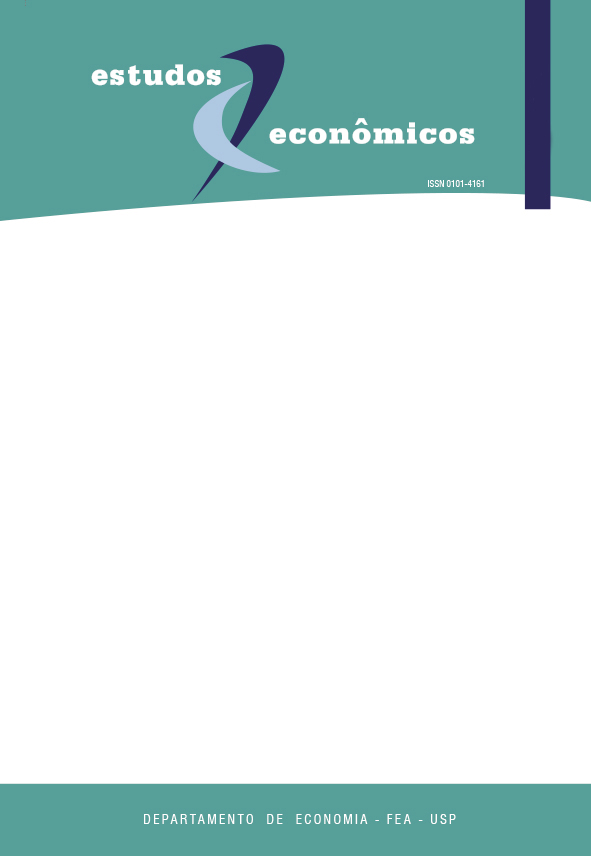Rankings in education: types, problems, information and changes analysis of the most important Brazilian official rankings
DOI:
https://doi.org/10.1590/S0101-41612011000200005Keywords:
rankings, value added, opportunistic behaviorAbstract
This paper classifies the different types of rankings in education, shows the problems that it has been finding and presents contributions to solve them. About the most important Brazilian official rankings it concludes that: (i) the Brazilian Ministry of Education has a different policy with respect to the higher education ranking vis-à-vis the secondary one - in the latter, it estimates the value added and inhibits opportunistic behavior; (ii) the focus in the Enem/Enade results may not imply greater education quality; (iii) the ad hoc choice of the higher education ranking components weights questions its validity; (iv) it is important to provide the confidence intervals of the estimated value added.
Downloads
References
Bishop , J. (1991) Achievement, test score, and relative wage; em Workers and Their Wages; Washington, DC: The AEI Press.
Chay , K.; McEwan , P; Urquiola , M. (2005) The central role of noise in evaluating interventions that use test scores to rank schools. American Economic Review, Vol. 95, Issue 4, September.
Chun , M. (2002) Looking where the light is better: a review of the literature on assessing higher education quality. Peer Review, Winter/Spring.
Clarke , M. (2002) Quantifying quality: what can the U.S. news and world report rankings tell us about the quality of higher education? Education Policy Analysis Archives, Vol. 10, Issue 16, March.
Cunha , F.; Heckman , J.; Lochner , L.; Masterov , D. (2005) Interpreting the evidence on life cycle skill formation. NBER Working Paper #11331.
Governo do Estado de São Paulo (2009) Programa de qualidade da escola – Nota técnica; Mimeografado.
Guia (2008). As melhores universidades do país. Editora Abril.
Hanushek , E. (1979) Conceptual and empirical issues in the estimation of educational production functions. The Journal of Human Resources, Vol. 14, Issue 3, Summer.
Hanushek , E. (2003) The failure of input-based schooling policies. The Economic Journal, Vol. 113, Issue 485, February.
Hanushek , E. Woessmann , L. (2008) The role of cognitive skills in economic development. Journal of Economic Literature, Vol. 46, Issue 3, September.
Inep (2008) Cálculo do conceito preliminar de cursos de graduação – Nota Técnica. http://enade.inep.gov.br/enadeResultado/pdfs/Procedimentos_Metodologicos_Calculo.pdf; visita ao site no dia 26/05/2009.
Inep (2009); Enem ; http://portal.mec.gov.br/index.php?option=com_content&view=article&id=13318&Itemid=310; visita ao site no dia 22/06/2009.
Ladd , H.; Walsh , W. (2002) Implementing value-added measures of school effectiveness: getting the incentives right. Economics of Education Review, Vol. 21, Issue 1, February.
McEwan , P.; Urquiola , M. Vegas , E. (2008) School choice, stratification, and information on school performance: lessons from Chile. Economia: Journal of the Latin American and Caribbean Economic Association, Vol. 8, Issue 2c, Spring.
Mene zes -Filho , N. (2007) Os determinantes do desempenho escolar do Brasil. Mimeografado.
Monks , J.; Ehrenberg , R. (1999) The impact of U.S. news & world report college rankings on admissions outcomes and pricing policies at selective private institutions, NBER, Working Paper # 7227.
Murphy , K.; Pelt zman , S. (2004) School performance and the youth labor market. Journal of Labor Economics, Vol. 22, Issue 2, April.
O Estado de São Paulo (2008) Particular quer fim da divulgação de avaliações. Publicado na edição de 5/12/2008.
Schwart zman , S. (2004) The national assessment of courses in Brazil. Public Policy of Academic Quality Research Program; March.
Yunker , J. (2005) The dubious utility of the value-added concept in higher education: the case of accounting. Economics of Education Review, Vol. 24, Issue 3, June.
Downloads
Published
Issue
Section
License
Copyright (c) 2011 Eduardo de Carvalho Andrade

This work is licensed under a Creative Commons Attribution-NonCommercial 4.0 International License.
By submitting an article, the author authorizes its publication and attests that it has not been submitted to any other journal. The original article is considered final. Articles selected for publication are proofread for grammatical and orthographic errors. The journal does not pay rights for published articles. The Institute of Economic Research from the School of Economics, Business and Accounting of the University of São Paulo (Instituto de Pesquisas Econômicas da Faculdade de Economia, Administração e Contabilidade da Universidade de São Paulo) owns the journal's copyright.




